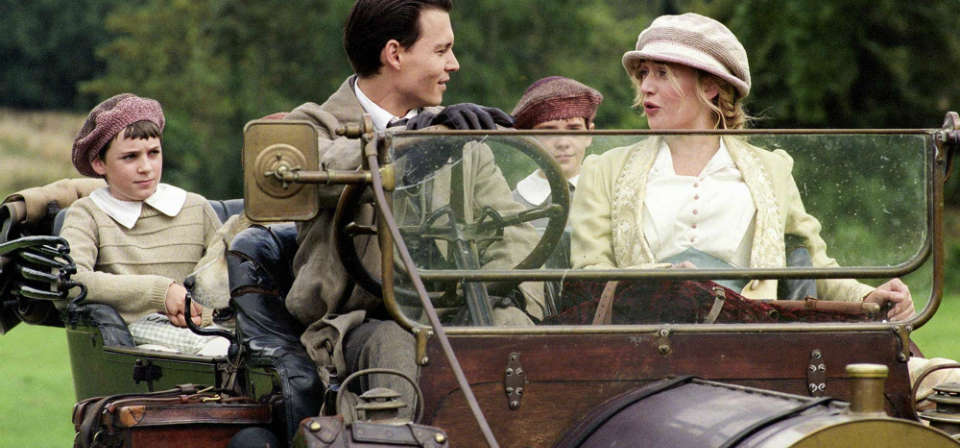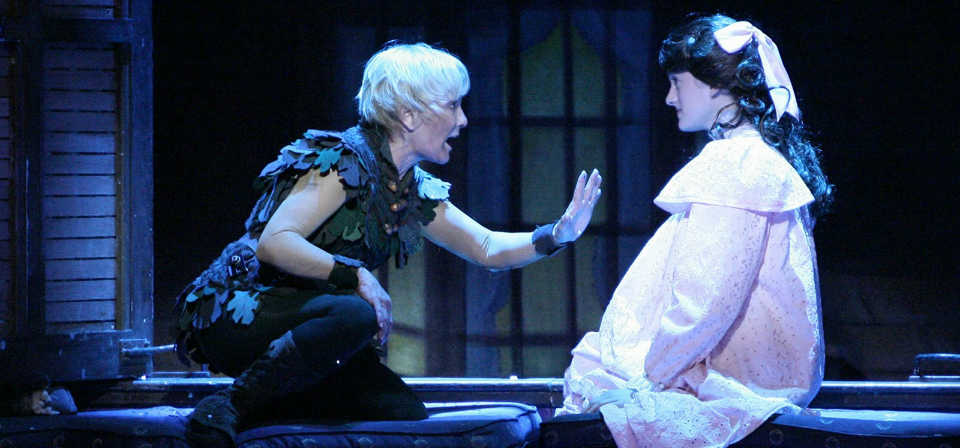Reviews
House of Flying Daggers (2004)
In the end, though, it turns out that the House of Flying Daggers is something the film doesn’t actually care about that much. So much is this the case, in fact, that the last time we hear tell of them, the warriors called the Flying Daggers are about to get into this huge climactic battle with the enemy soldiers, whom we see advancing slowly into the bamboo forest where the Flying Daggers are hiding… at which point the story cuts to another plot thread, never to return.
Wild Strawberries (1957)
For Bergman’s protagonist, an elderly doctor named Isak Borg (Victor Sjöström) who significantly shares Bergman’s initials, there is bitter as well as sweet in the fields of his mind. The film is a road trip that is also a journey of self-discovery as Borg is forced to confront his own coldness of heart and need for forgiveness.
The Searchers (1956)
The reputation of John Ford’s The Searchers as a classic but troubling Western in which John Wayne plays an Indian-hating racist is so widely accepted that it’s a bit of a surprise to discover that the film, and the character, are in fact more complex than the reputation suggests.
The SpongeBob SquarePants Movie (2004)
(Written by Jimmy Akin) SpongeBob SquarePants (Tom Kenny) is a sponge who wears square pants and who lives in a town on the ocean floor called Bikini Bottom (get it?). He’s also an ace crackerjack fry cook in a greasy spoon called the Krusty Krab.
Old Yeller (1957)
"It’s not just a dog story," writes Annie Dingus in Texas Monthly, "it’s a rite of passage for American children." She is right. "Who saw Old Yeller?" Bill Murray asks a bunch of American soldiers in Stripes, trying to define our national spirit. "Who cried when Old Yeller got shot at the end? Nobody cried when Old Yeller got shot? I’m sure. I cried my eyes out!" And on NBC’s "Friends," ditsy Phoebe had a sudden unpleasant revelation as she realized that all her life her parents had always turned off the film before the climax, sparing her the film’s heartbreak — but also its life-affirming wisdom.
The Seventh Seal (1957)
Starkly existential, boldly poetic, slow and grim, Ingmar Bergman’s great classic The Seventh Seal has haunted film aficionados, baffled and bored college students, inspired innumerable parodists, and challenged both believers and unbelievers for nearly half a century.
King Arthur (2004)
Even in the silent era, with Douglas Fairbanks playing every legendary hero from Zorro to Robin Hood to D’Artagnan, seeking adventure everywhere from the Spanish Main (The Black Pirate) to Arabian Nights territory (The Thief of Bagdad) to South America (The Gaucho), King Arthur was overlooked.
Lassie Come Home (1943)
The obstacle to this duty, of course, is that Joe’s father Sam (Donald Crisp) is eventually forced out of financial necessity to sell Lassie to the wealthy Duke of Rudling (Nigel Bruce). However, Lassie twice escapes from the the duke’s disagreeable handler Hynes (J. Patrick O’Malley) in order to keep her appointment with Joe, and eventually the duke takes Lassie to an estate in Scotland, over a thousand miles from her home.
I Confess (1953)
Hitchcock’s underrated I Confess may or may not not quite rank with his greatest masterpieces, but it offers perhaps the most compelling variation on the director’s favorite theme, the innocent man wrongly accused.
La Strada (1954)
As yet, I have found no illumination in critical accolades and explanations. No critical account of La Strada I have read has struck me as compelling or illuminating. Pauline Kael famously wrote that the three main characters represent the flesh, the spirit, and the mind. But the same could be said for virtually any trinity of characters, from Lancelot, Arthur, and Guinevere to Kirk, Spock and McCoy to Mr. Toad, Mole, and Rat, and what light this paradigm sheds on this particular story is unclear to me. Alan Stone calls it "a parable about Italy under fascism and the possibility of Christian Salvation," but I can’t see that it has anything interesting to say about this either, or that it says it in an interesting way.
Red Dragon (2002)
Now, with Red Dragon, based on the novel in which Lecter first appeared, the series has come full circle. In Silence, we saw Lecter escape from prison; here we see him captured by FBI profiler Will Graham (Ed Norton, The Score). While the humorous note introduced by Hannibal continues to be a factor, an effective prelude reestablishes Lecter as a frightening psychopath who’s willing to kill innocent and likeable characters.
My Man Godfrey (1936)
Possibly the screwiest of all screwball comedies, My Man Godfrey is the ultimate Depression-era satire of the idle rich and tribute to the noble poor.
Miracle of Saint Thérèse (1952)
Joan of Arc, the warrior-saint who wore men’s garb and was burned at the stake, would at first glance seem to be an odd role model for a girl whose greatest aspiration was to wear the habit of a cloistered nun and who died in the convent of tuberculosis.

Finding Neverland (2004)
The film depicts Barrie coming into the Llewelyn Davies boys’ lives like Robin Williams into the lives of his students in Dead Poets Society. This isn’t a story about magical childhood soaring where no adult can follow, but about a magical adult imparting the gift of imagination to children.
8½ (1963)
Though more of a Fellini skeptic than not myself, I can’t go along with the common opinion that Fellini’s early neorealist-inflected works, culminating in La Strada, are his best, and that the later, increasingly surreal cinema of the gaudy and fantastical represented by 8½; is self-indulgently trivial by comparison.
The Sacrifice (1986)
To “rip open the inconsolable secret,” to awaken the spiritual hunger for something beyond the materialistic scope of our fragmented, desacrilized modern existence, was the burden of Andrei Tarkovsky, cinematic poet laureate of the Russian soul.
Peter Pan (1953)
For millions of children and adults, Disney’s Peter Pan is THE Peter Pan, as well as a defining moment in Disney animation, giving the studio its logo mascot, Tinker Bell.

Peter Pan (2000)
It may seem heresy to baby boomers with fond memories of Mary Martin singing and flying on NBC, but this beautifully produced A&E restaging of the musical, starring gymnast-turned-actress Cathy Rigby, eclipses the beloved 1960 Martin kinescope in almost every way.
Peter Pan (2003)
One of the functions of fairy tales is to reflect in an imaginative way truths that, were they presented literally, children might not be ready for, but which they can on some level apprehend and assimilate in this form, and be in some way more prepared emotionally for life. Fairy tales help children grasp what life expects of them, what dangers, adversities, and opportunities they will face. From them children can begin to learn the prudence to avoid the dangers, the fortitude to face the adversities, and the enterprise to seize the opportunities.
Peter Pan (1924)
Continuing a stage convention that would extend to subsequent film versions, Pan is played by a petite woman, teenaged Betty Bronson (hand-picked by Barrie himself), who brings tomboyish energy and dash to the role. Ernest Torrence sneers with foppish malevolence as Captain Hook, and Mary Brian makes a charming Wendy. The stage flying effects work just as well onscreen, and George Ali reprises his delightful costumed animal performances from the stage as Nana and the crocodile.
Recent
- Benoit Blanc goes to church: Mysteries and faith in Wake Up Dead Man
- Are there too many Jesus movies?
- Antidote to the digital revolution: Carlo Acutis: Roadmap to Reality
- “Not I, But God”: Interview with Carlo Acutis: Roadmap to Reality director Tim Moriarty
- Gunn’s Superman is silly and sincere, and that’s good. It could be smarter.
Home Video
Copyright © 2000– Steven D. Greydanus. All rights reserved.